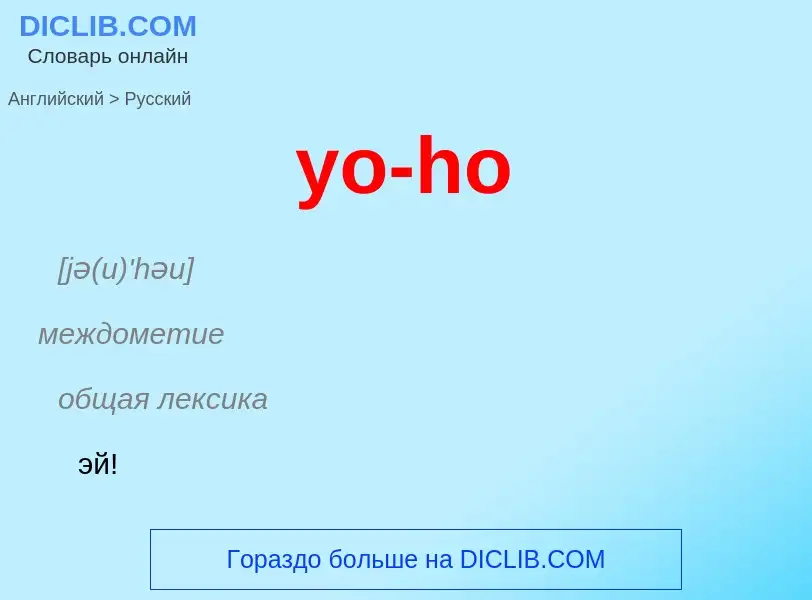Tradução e análise de palavras por inteligência artificial ChatGPT
Nesta página você pode obter uma análise detalhada de uma palavra ou frase, produzida usando a melhor tecnologia de inteligência artificial até o momento:
- como a palavra é usada
- frequência de uso
- é usado com mais frequência na fala oral ou escrita
- opções de tradução de palavras
- exemplos de uso (várias frases com tradução)
- etimologia
yo-ho - tradução para russo
[jə(u)'həu]
междометие
общая лексика
эй!
берегись!
взяли!
дружно! (при совместной работе)
глагол
[jə(u)'həu]
общая лексика
кричать
выкрикивать «эй!»
«а ну!»
«берегись!»
выкрикивать «раз!»
«взяли!»
«дружно!» (при совместной работе)
[həu]
междометие
[həu]
общая лексика
эй! (оклик)
ого! (выражает удивление восхищение, радость и т. п.)
вперёд!
тпру!
стой!
взяли!
эй! (оклик выражает удивление, радость и т. п.)
существительное
[həu]
общая лексика
предел
диалектизм
остановка
Definição
Wikipédia

The kendama (けん玉, "sword [and] ball") is a traditional Japanese skill toy. It consists of a handle (ken), a pair of cups (sarado), and a ball (tama) that are all connected together by a string. On one end of the ken is a cup, while the other end of ken is narrowed down, forming a spike (kensaki) that fits into the hole (ana) of the tama. The kendama is the Japanese version of the classic cup-and-ball game, and is also a variant of the French cup-and-ball game bilboquet. Kendama can be held in different grips, and many tricks and combinations can be performed. The game is played by tossing the ball into the air and attempting to catch it on the stick point.
The origins of kendama are disputed, but it is generally believed to have originated during the 17th or 18th century. Kendama started to evolve when it came to Japan during the Edo period, and since then the use of the toy has spread throughout the world. The size and materials used to create kendamas now vary as they are offered in jumbo and mini sizes, and have been created out of plastic, metal, and nylon. There are now kendama competitions held in countries all over the world, the biggest competition being the annual Kendama World Cup in Japan.





